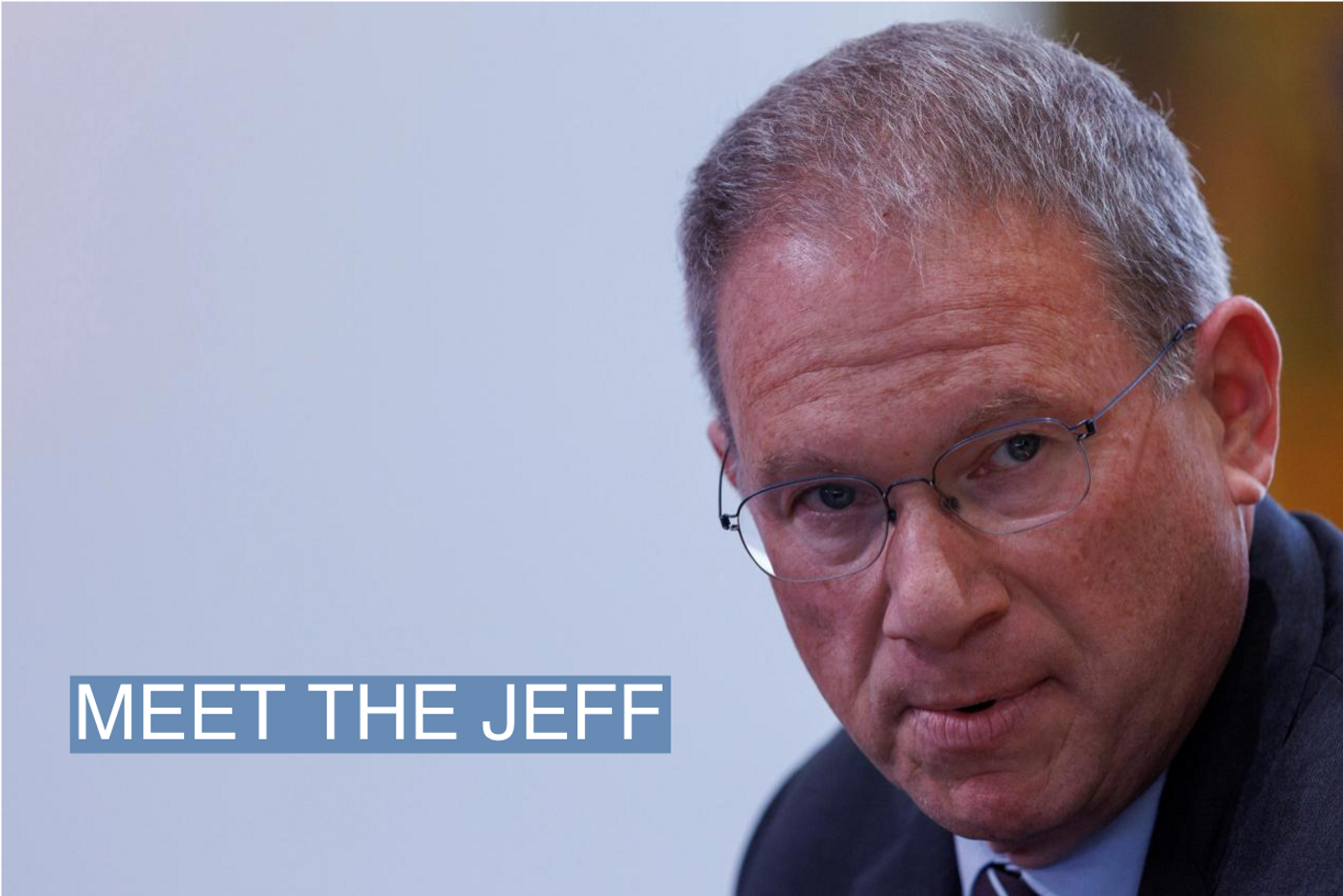Trump's Odd Behavior: Jeffrey Goldberg Recounts A Bizarre Interview

Table of Contents
The Context of the Interview – Setting the Stage for Trump's Odd Behavior
Goldberg's interview with Trump, published in the Atlantic magazine, occurred during a turbulent period in the latter's presidency. The timing, close to a significant election, heightened the political significance of the interview. The article itself became a lightning rod, sparking intense debate and shaping public opinion surrounding Trump's character and leadership abilities. Its publication wasn't just a news event; it was a cultural moment that fueled discussions about presidential behavior and the media's role in portraying powerful figures. The broader implications of this interview extended far beyond the immediate political climate, impacting how Trump was perceived both domestically and internationally. Keywords: Trump interview, Goldberg interview, political context, presidential interview, Atlantic magazine.
Specific Instances of Trump's Odd Behavior – Goldberg's Account
This section details several key instances of Trump's unusual conduct, as reported by Goldberg, illustrating the erratic nature of the interview.
Disregard for Facts and Reality
The interview revealed numerous instances where Trump displayed a blatant disregard for facts and reality. For example, Goldberg recounts:
- Distorted accounts of military engagements: Trump's descriptions of military operations often deviated significantly from official accounts, showcasing a pattern of misinformation.
- Fabricated or exaggerated achievements: The interview included instances where Trump embellished his accomplishments, presenting a distorted picture of his own legacy.
- Denial of well-documented events: Trump denied the existence of events supported by strong evidence, illustrating a consistent pattern of fact distortion.
These behaviors raise questions about Trump's understanding of truth and his commitment to factual accuracy, impacting his credibility and trustworthiness. Keywords: factual inaccuracies, misinformation, truth distortion, Trump's statements, misleading information.
Incoherent and Rambling Speech Patterns
Goldberg describes Trump's speech during the interview as frequently rambling and incoherent. This included:
- Tangential digressions: Trump frequently shifted topics mid-sentence, making it difficult to follow his train of thought.
- Repetitive and nonsensical statements: Certain phrases and ideas were repeated multiple times without clear context or purpose.
- Lack of logical sequencing: The interview showcased a noticeable absence of logical flow in Trump's statements, making it challenging to understand his central arguments.
These patterns suggest potential communication difficulties, or more deeply, underlying cognitive or psychological factors. Keywords: incoherent speech, rambling speech, Trump's language, verbal communication, speech patterns.
Unpredictable Emotional Shifts
Throughout the interview, Trump's emotional state appeared erratic and unpredictable. Goldberg noted:
- Sudden shifts from anger to boastfulness: Trump's mood fluctuated dramatically, often without clear provocation.
- Uncontrolled outbursts of rage: The interview included instances of uncontrolled anger directed at both Goldberg and other individuals.
- Inconsistent demeanor: Trump's demeanor vacillated between aggression, defensiveness, and self-congratulation.
These unpredictable shifts raise concerns about his emotional stability and capacity for rational decision-making. Keywords: emotional instability, mood swings, unpredictable behavior, emotional responses, erratic behavior.
Evasive Answers and Refusal to Engage
Trump consistently avoided direct answers to Goldberg's questions, employing various evasive tactics:
- Changing the subject: Trump repeatedly deflected questions by shifting the focus to unrelated topics.
- Offering vague or nonsensical responses: He provided answers that lacked substance or failed to address the questions directly.
- Refusing to acknowledge uncomfortable truths: Trump flatly refused to engage with questions that challenged his narrative.
These evasive tactics suggest a calculated avoidance of accountability and a reluctance to engage in substantive dialogue. Keywords: evasive answers, refusal to answer, Trump's responses, interview tactics, evasiveness.
Conclusion: Interpreting Trump's Odd Behavior – Key Takeaways and Further Considerations
Goldberg's account reveals a pattern of unusual behavior from Donald Trump, characterized by a disregard for facts, incoherent speech, unpredictable emotional shifts, and a consistent refusal to engage with challenging questions. Interpreting this behavior requires considering various factors, including potential political strategies, underlying psychological factors, and unique communication styles. However, the consistent nature and severity of these instances raise significant concerns about his fitness for high office. Goldberg's reporting offers a crucial window into understanding Trump's presidency and the lasting impact of his unconventional approach to leadership. To gain a comprehensive understanding of Trump's conduct, it's essential to read Goldberg's full interview account. [Insert link to the interview here]. Form your own conclusions about Trump's conduct, analysis of Trump's behavior, Goldberg's reporting, and understanding Trump.

Featured Posts
-
 Auction Of Kid Cudis Possessions Yields Unexpectedly High Bids
May 15, 2025
Auction Of Kid Cudis Possessions Yields Unexpectedly High Bids
May 15, 2025 -
 The Carney Cabinet A Business Perspective On The Key Appointments
May 15, 2025
The Carney Cabinet A Business Perspective On The Key Appointments
May 15, 2025 -
 Transgender Soldiers Grievous Discharge A Story Of Discrimination
May 15, 2025
Transgender Soldiers Grievous Discharge A Story Of Discrimination
May 15, 2025 -
 Justice Sought Trans Master Sergeant Fights Unjust Discharge
May 15, 2025
Justice Sought Trans Master Sergeant Fights Unjust Discharge
May 15, 2025 -
 Analyzing The Andor Season 2 Timeline The Possibility Of Rebels Characters
May 15, 2025
Analyzing The Andor Season 2 Timeline The Possibility Of Rebels Characters
May 15, 2025
